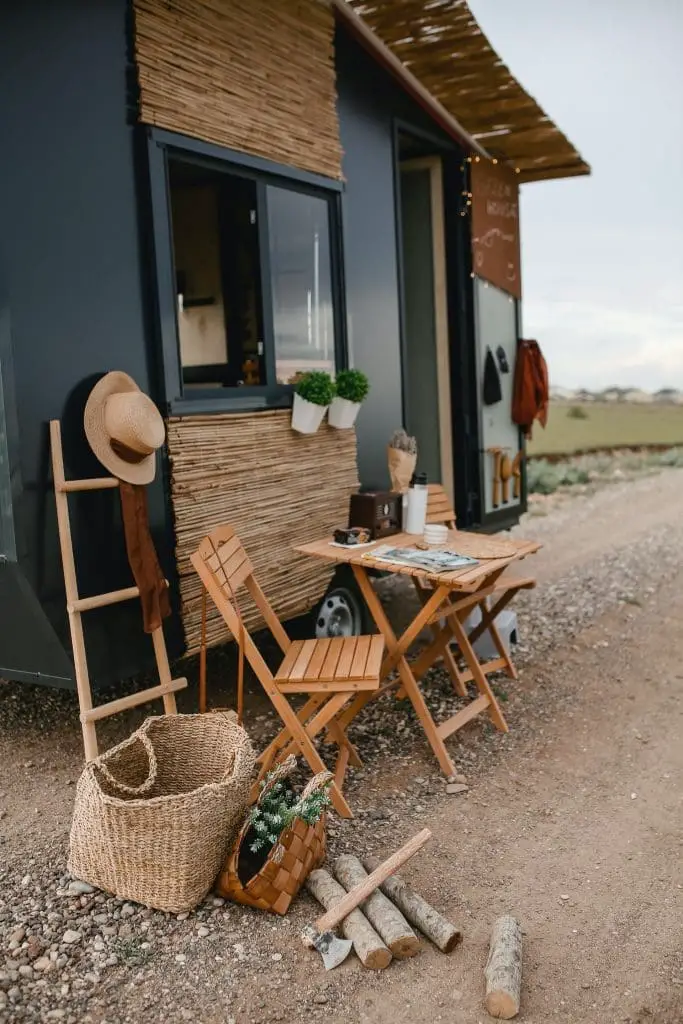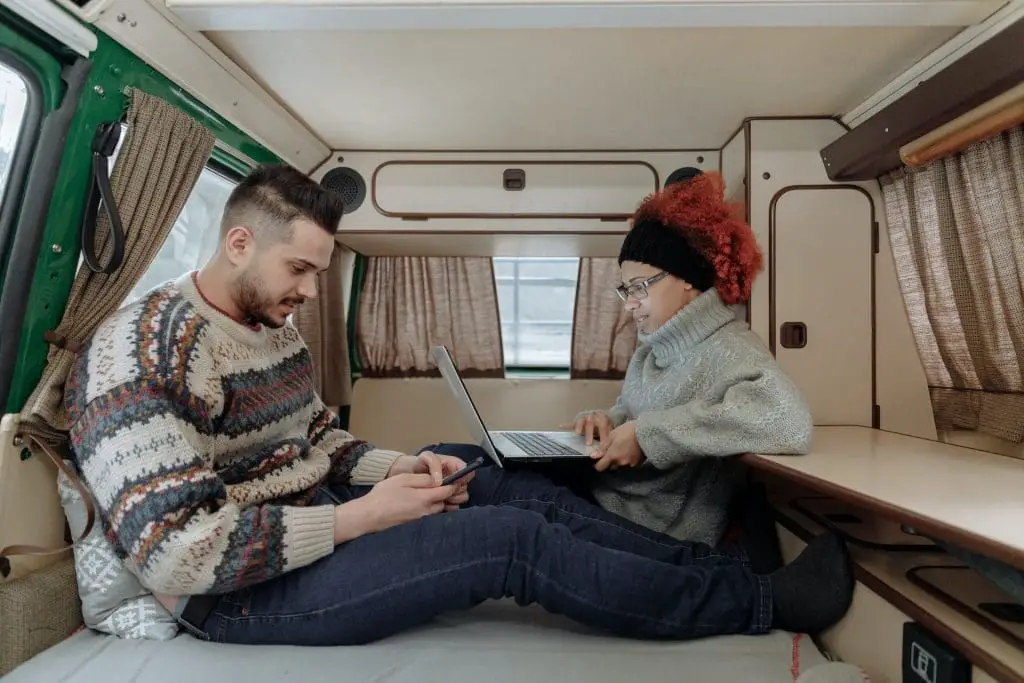There are several potential hidden costs to consider when buying a mobile home. These costs may vary depending on the specific details of your purchase and the location of the property, but some common hidden costs to consider include:
- Financing fees: Mobile homes may be more difficult to finance than traditional houses, and you may face higher interest rates or fees for securing a mortgage.
- Closing costs: Closing costs for a mobile home purchase may include fees for appraisals, inspections, title searches, and other services.
- Repairs and renovations: Mobile homes may require more repairs or renovations than traditional houses, and these costs can add up quickly. This can include things like roof repairs, plumbing repairs, and HVAC repairs.
- Moving costs: If the mobile home is not already located in the area where you want to live or if you need to move the mobile home to a different location for any other reasons, you may need to pay for transportation and setup costs. These costs can vary widely depending on the distance and the size of the home.
- Site preparation: If you are not purchasing a mobile home park lot, you will need to prepare a site for the home. This may include grading, leveling, installing utilities, and possibly building a foundation.
- Upgrades: If you want to make improvements or upgrades to your mobile home, such as adding a deck or a new roof, you will need to pay for these costs out of pocket.
- Land lease fees: If you live in a mobile home park, you may be required to pay a monthly land lease fee in addition to your mortgage or rent payment.
- Taxes and insurance: Property taxes and insurance costs may be higher for mobile homes than for traditional houses, depending on the location and value of the property.
- Resale value: Mobile homes tend to have lower resale values than traditional stick-built homes, so be sure to consider this when deciding how much to spend.
It’s important to do your research and understand all of the costs associated with buying a mobile home before making a purchase. Working with a real estate agent who is familiar with mobile home purchases can also help you navigate the process and identify any potential hidden costs.

What are the running costs of a mobile home?
The running costs of a mobile home will vary depending on a number of factors, including the size of the home, the location in which it is located, and the specific features and amenities that are included.
Most people who live in mobile homes report relatively low monthly expenses, including utilities, insurance, taxes, and fuel costs. The main expense associated with owning a mobile home is the initial purchase cost; however, regular maintenance is also an important expense that should not be overlooked. Regular maintenance includes checking the roof for damage, keeping the exterior clean and maintained, replacing worn parts like tires or brakes as needed, and making sure all of the appliances are in good working order. These costs can add up quickly if they are neglected or ignored over time. Additionally, there may be additional fees depending on where you park your mobile home such as lot rent or other fees.
Some of the main costs that are associated with owning and maintaining a mobile home include:
- Mortgage or rent payments: If you own your mobile home, you will need to pay a mortgage on it. If you rent your home, you will need to pay rent to the owner.
- Utilities: You will need to pay for utilities such as electricity, gas, water, and sewage.
- Insurance: Mobile homes require insurance to protect against damage or loss.
- Maintenance and repairs: You will need to budget for regular maintenance and repairs to keep your home in good condition.
- Taxes: You may need to pay property taxes on your mobile home, depending on your location.
- Community fees: If your mobile home is located in a community, you may need to pay fees for access to amenities such as a swimming pool or community center.
- Transportation: If you own a mobile home, you will need to pay for the cost of transporting it to your chosen location.

The disadvantages of living in a mobile home
Living in a mobile home can have its disadvantages, as well. One of the major drawbacks is that they are not as sturdy or secure as traditional homes, making them more vulnerable to extreme weather conditions and other natural disasters. Additionally, it can be difficult to obtain a mortgage for a mobile home because they depreciate in value over time. Mobile homes also tend to have limited access to amenities and utilities such as cable, internet, and plumbing. As a result, you may need to spend extra money on installing these services if you want them. Furthermore, living in a mobile home usually means living in an area with little privacy due to the close proximity of neighbors.
Here’s a list of disadvantages reported by people who lived in a mobile home;
- Limited space: Mobile homes are often smaller in size compared to traditional homes, which can limit the amount of space available for storage, living, and entertaining.
- Limited customization: Mobile homes are typically built in a factory and are not meant to be modified or customized in the same way that traditional homes can be. This can make it difficult to personalize your living space or make necessary renovations.
- Resale value: Mobile homes tend to have a lower resale value compared to traditional homes, which can make it difficult to sell your home in the future if you need to relocate.
- Depreciation: Mobile homes depreciate in value over time, which means that they may not be a good investment for those looking to build equity in their home.
- Poor insulation: Many mobile homes are not well-insulated, which can lead to high heating and cooling costs.
- Limited financing options: It can be difficult to get a mortgage for a mobile home, as many lenders are hesitant to finance them.
- Transportation costs: If you decide to move your mobile home, it can be expensive to hire a company to transport it.
- Limited community amenities: Mobile home communities may not offer the same amenities as traditional neighborhoods, such as access to community pools or clubhouses.
Some people may also find it hard to establish roots when living in a mobile home since you may need to move frequently. It can be difficult to develop a sense of belonging when you have to move often. However, there are several ways to combat this feeling and create a sense of home in your mobile home. These include decorating your mobile home with personal items and photographs, establishing relationships with neighbors, visiting local attractions and events, and getting involved in the community. Additionally, investing in quality furniture and appliances that will last can help make your space feel more permanent.
What Is The Typical Lifespan of a Mobile Home?
The typical lifespan of a mobile home is around 30 years, although it can vary widely depending on the quality of construction and the maintenance done on it. Mobile homes that are well-maintained and regularly inspected can last up to 55 years or even longer. It’s important to be proactive in caring for your mobile home, as some components such as walls and floors may have shorter lifespans than the overall structure. Regular inspections and maintenance should be done every year and any repairs needed should be addressed promptly. In addition, proper ventilation, insulation, and air conditioning are all important factors that can help extend a mobile home’s lifespan. Taking good care of your mobile home will ensure it lasts as long as possible and provides you with comfort and reliability throughout its life.
How Can You Increase The Value of a Mobile Home
Increasing the value of a mobile home is a great way to make your investment more valuable. One of the best ways to do this is to improve the exterior of the home by replacing windows and doors, adding insulation, and improving the landscaping. Electricity costs have gone up in recent years and people want to live in high energy rating homes with good insulation and energy efficient appliances. The inside of the home can also be upgraded with new flooring, paint, and plumbing fixtures. Other upgrades that may add value include updating appliances and installing energy-efficient features like LED lighting, programmable thermostats, or solar panels.
Investing in regular maintenance such as repairing roof leaks or cleaning gutters can also help keep the mobile home in good condition and improve its value. Regular maintenance will also help extend the life of the home. Additionally, making sure all appliances are updated and in working order, as well as painting the exterior of the home can also help to increase the value of a mobile home.
Is a mobile home a good retirement?
Mobile homes can be a great option for retirement, depending on one’s needs and preferences. They are usually much more affordable than traditional housing, making them an attractive option for those on a limited budget. Mobile homes also typically have a smaller footprint than traditional homes, which can make them easier to maintain and manage – with lower maintenance and running costs like heating and cooling. Additionally, many mobile home communities offer amenities such as recreational activities and social events that can enhance the overall retirement experience. Finally, many mobile homes come with features such as built-in decks or patios that are ideal for entertaining or relaxing in. In summary, there are many advantages to choosing a mobile home as a retirement option and it is definitely worth considering if you’re looking for an affordable and low-maintenance way to enjoy your golden years.
Ultimately it all depends on the individual circumstances, financial situation and preferences of the retiree. But mobile and tiny homes have definitely increase in popularity in recent years mostly due to the rise in house prices and inflation. People are looking for ways to live comfortably without having to pay a huge mortgage and live paycheck to paycheck. People are looking for more freedom and less material possessions. And mobile homes can offer all that.




